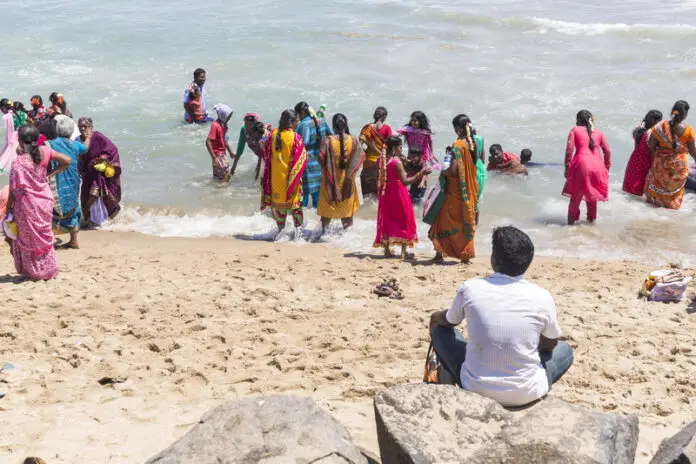At least 46 people, including 37 children, drowned while participating in a religious festival in the eastern Indian state of Bihar. The incident occurred during the three-day Jivitputrika festival on Tuesday, September 24, 2024, as families gathered near rivers and ponds for traditional bathing rituals.
Recent heavy rains had caused water levels to rise in the region’s waterways, contributing to the fatal incidents. Officials in Bihar reported that many individuals bathed during the festival celebrations despite the dangerous river water levels. Authorities also expressed concern that the death toll may increase.
These drowning deaths occurred across 15 districts in Bihar over 24 hours, with 43 bodies recovered by authorities. Three people remain missing and are presumed dead.
Aurangabad District in Bihar was particularly hard hit, with eight minors drowning in two villages while bathing in a local pond. “The bodies of seven children there were retrieved as of late Wednesday, but one was still missing,” said Saurabh Kumar, a police officer in the district.
The festival is a deeply rooted tradition in many northern Indian states, where mothers pray for the long lives of their children. As part of the ritual, women fast for 24 hours and then, often accompanied by their children, head to rivers and ponds for a cleansing bath. Unfortunately, safety measures appeared lacking, as many families ignored the risks.
This tragedy is the latest in a series of deadly accidents during religious festivals in India. In July of this year, a stampede at a religious gathering in Uttar Pradesh left at least 121 people dead due to overcrowding and insufficient exits. According to officials, accidents such as drownings and stampedes during major religious events are common in India, where large gatherings often take place with little oversight or safety precautions.
Bihar’s state government has responded to the tragedy by announcing compensation for the victims’ families. Each family is set to receive approximately $4,784 to help with funeral expenses and support. However, the grief and loss experienced by these families will be difficult to quantify, as the festival, meant to bring blessings, instead brought tragedy.
In addition to the compensation efforts, local police and disaster management teams are investigating why so many individuals were permitted to bathe in dangerous conditions. Families and victims’ relatives are also pressing for answers, demanding that future events be managed with better care to avoid another such tragedy.

